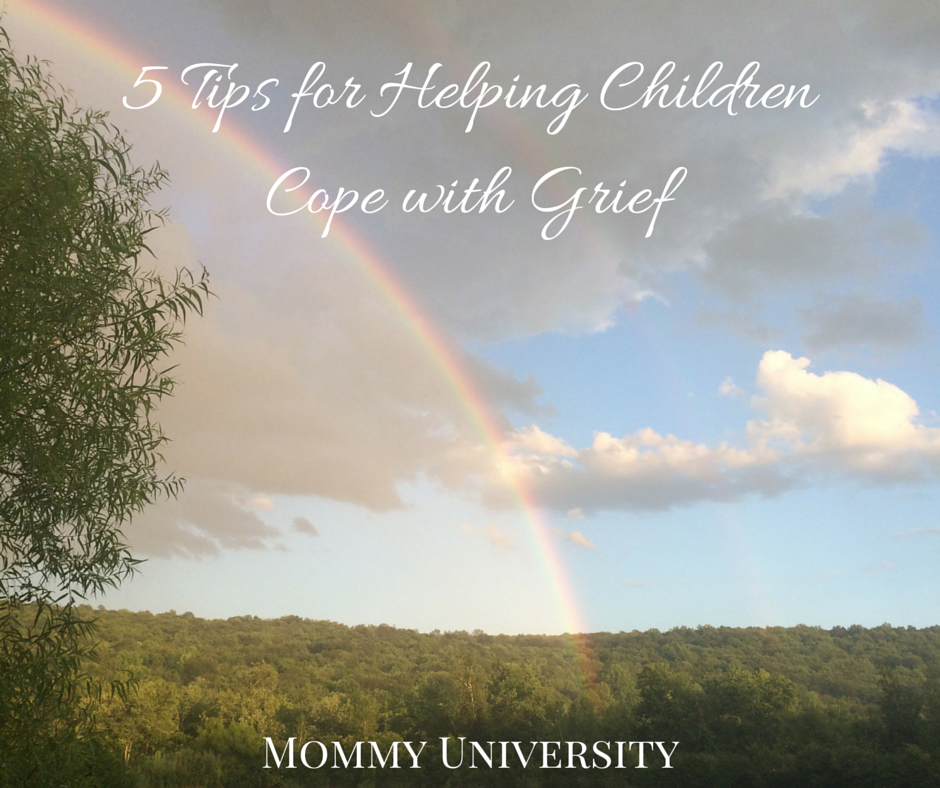It is so hard to explain death to a child, and it can be even harder to help them understand death and the grieving process. If you haven’t done so already, please read my article explaining how I explained death to my son, Over the Rainbow: Helping My Son Understand Loss. After my experience, I came up with some tips I thought would be helpful in supporting your child after suffering a loss.
5 Tips to Help Children Understand and Cope with Death
Be Honest: Kids Sense Everything. They may not be able to verbally express what is happening, but, trust me, they know. You want them to feel safe and secure so when a parent keeps something from them that only creates feelings of anxiety and confusion. You don’t have to share every detail, but you should not lie or keep the truth from them.
Ask for Help! It’s okay to lean on others and ask for support. It’s okay to ask someone to watch the kids while you cry in your room for a while. For my father’s funeral, I enlisted the help of family members to watch the boys during the church ceremony. Then they were taken to Toys R Us while I went to the cemetery. It was helpful to know that they were well taken care of!
Prepare them if possible. This is a hard one! My father had been sick for quite a while, and my older son had visited him in the hospital several times in his short life. He knew that poppy was sick, but I never explained that he could “go over the rainbow.” Looking back, I really wish I would have prepared him. I did, however, prepare him for my grandmother’s passing which, sadly, was 8 months after my father. She was sick from cancer, and I explained to my son that Nanny was sick, and she may join Poppy over the rainbow. When she passed, he was better able to understand what happened.
Be supportive and aware! It is so important to be aware of what your child is feeling. Remember, their emotions usually come out in actions not words so if they begin to behave differently that means they are trying to tell you something. Some kids may become withdrawn while others will misbehave. Either way it is important to give them attention and love! Also, talk to them about their feelings and support their emotions.
Use different resources. There are so many resources out there to help children understand and cope with death. Books are a great way to help children understand death and deal with grief. (Blog post coming soon with list of books!) Another wonderful, and unlikely resource, is Disney movies. There are many Disney films that deal with the loss of a parent or sibling. Watching these movies such as Bambi, Lion King, Finding Nemo and Big Hero 6, can really help open up the lines of communication and allow children to better talk about their loss.
You may also want to look into support groups for children such as Rainbows, an organization that helps children and teens grieve and grow after experiencing the loss of a parent or guardian. Good Grief, located in Morristown and Princeton, also offers a wonderful outlet for children and parents who are suffering an immediate loss. Individual and family counseling may be appropriate as well if you find that your child is having a very hard time dealing with the loss of a loved one.
I hope you have found these tips helpful. What is really important to note, however, is that grief is a process. It is a process that is experienced differently by each person. It does not follow a specific path or pattern as some may believe. For some, the immediate grief is less painful than the grief felt years later.
It is important to stay aware of your child’s needs. Holidays, birthdays and big events such as graduations, weddings and the birth of a baby can all trigger feelings of grief and sadness. For myself, something as simple as a thunderstorm or a commercial about the Yankees can bring up feelings of sadness. Keep the lines of communication open with your child so when they are feeling sad or even helpless, they know they can turn to you for love and support!
